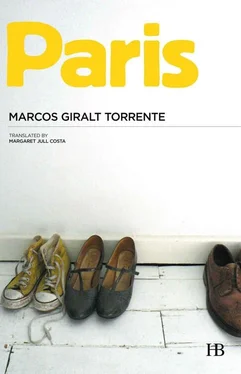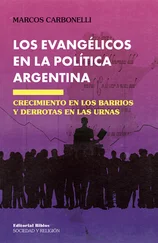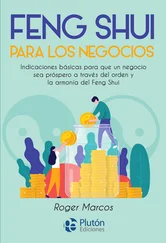Marcos Giralt Torrente - Paris
Здесь есть возможность читать онлайн «Marcos Giralt Torrente - Paris» весь текст электронной книги совершенно бесплатно (целиком полную версию без сокращений). В некоторых случаях можно слушать аудио, скачать через торрент в формате fb2 и присутствует краткое содержание. Год выпуска: 2014, ISBN: 2014, Издательство: Hispabooks, Жанр: Современная проза, на английском языке. Описание произведения, (предисловие) а так же отзывы посетителей доступны на портале библиотеки ЛибКат.
- Название:Paris
- Автор:
- Издательство:Hispabooks
- Жанр:
- Год:2014
- ISBN:9788494228452
- Рейтинг книги:5 / 5. Голосов: 1
-
Избранное:Добавить в избранное
- Отзывы:
-
Ваша оценка:
- 100
- 1
- 2
- 3
- 4
- 5
Paris: краткое содержание, описание и аннотация
Предлагаем к чтению аннотацию, описание, краткое содержание или предисловие (зависит от того, что написал сам автор книги «Paris»). Если вы не нашли необходимую информацию о книге — напишите в комментариях, мы постараемся отыскать её.
Paris — читать онлайн бесплатно полную книгу (весь текст) целиком
Ниже представлен текст книги, разбитый по страницам. Система сохранения места последней прочитанной страницы, позволяет с удобством читать онлайн бесплатно книгу «Paris», без необходимости каждый раз заново искать на чём Вы остановились. Поставьте закладку, и сможете в любой момент перейти на страницу, на которой закончили чтение.
Интервал:
Закладка:
Marcos Giralt Torrente
Paris
To the one who is no longer here.
And to Luz Suárez, who gave me her name.
I
It’s in the silence of the night, in those moments that precede sleep, when the worst of nightmares are most likely to assail us and make us turn for comfort to the warm illusion of the person sleeping at our side, that’s when the memory of my mother becomes omnipresent and knocks at the door of my consciousness like an outcast knocking at the door to reclaim the place from which he was once expelled. It doesn’t happen often, but when it does, fears and regrets I assumed to have been long since vanquished overwhelm me and fog my thoughts. I suddenly find myself torn between lamentation, which is a reproach to her, because her presence is no longer enough to fill everything around me with significance, and sadness, which is a reproach to myself, for failing to realize that she was once a child, too, and, like me, will never again have someone who can assuage her dread of failure and oblivion.
It’s nostalgia. It’s fear. It’s a dream state. It’s the loneliness that looms in the darkness. It’s not knowing and yet wanting what I feel and what I imagine to coincide. It’s doubt, too. It’s all those unanswered questions. It’s wanting to run to the place where she’s waiting for me so that I can tell her, It’s all right, I know everything .
To be honest, I’m not entirely clear what my feelings are, and I simply can’t understand why it is that whenever I’m a bit down, I’m always drawn back to the thought of something that may never even have happened and only exists in my imagination as a way of neutralizing the different emotions the image arouses in me. I will never know more than I know now, and perhaps it’s the impossibility of getting beyond mere speculation that continues to endow with significance an event which, if it did happen, would have to be considered less important in comparison with others I know to have happened, and which she very bravely told me about when few people in her situation would have dared to so much as mention them. And I’m drawn back to that event even though, were my mother capable of filling what seemed to be the void of my memory, I would still not ask her about it, knowing that there would be no point in probing the reasons for or the consequences of her actions, because after all these years, anything she said would not be so very different from what anyone in her place would say or from what I can so easily imagine for myself.
For example, I can see them on what might have been their last morning together. I can see them waking up, I can hear what they’re saying. My mother is still in bed, and my father is shaving or washing up on the other side of the partition wall. On the bedside table are some earplugs, a clock, two ivory bracelets, and yesterday’s newspaper. It’s the second or third day that they’ve woken up in that room, and they probably won’t stay longer than a week. My mother isn’t smiling, she has no plans and no idea how she will fill the next few hours. It’s the only moment in the day when she allows herself to look back and when she feels any remorse. She wants his presence there to act as a kind of guarantee of oblivion, and she listens eagerly for each sound coming from the bathroom. She waits expectantly for the gurgle of water as it’s gulped down the plughole in the sink, she hears a cheery whistle and knows that he’s finished sprucing himself up now and is beginning to put on the same clothes he left hanging on the door handle last night. She knows they are in pristine condition and will remain so until their owner decides to take them to the laundromat. She knows that she should follow his example but is incapable of imitating him and, instead, leaves hers in a heap on the floor, lacking his foresight and as yet unaccustomed to this new life in which every gesture must be gauged and measured.
I can see that time of awakening, but I can just as easily imagine a world in which such a scene never took place and my mother never spent the night in a hotel room with my father or with any other man. That is just as convincing a possibility. Even if she herself were to corroborate the one and reject the other, the dilemma would remain. After all, everything I know, I owe to her, and I have no way of finding out if she is also the reason I don’t know certain other things, things she deliberately kept from me. When our knowledge of a subject depends on the words of others, we can never be sure if they’ve told us everything or only a part. That’s why, even if she had been totally honest and described to me every minute they spent together, every argument, and everything they could have done but didn’t, nothing would change. There’s no point imagining or asking. Words don’t exist in the present. Words come later, and we all use them in the same way, we can all describe and offer an opinion even though what we describe or have an opinion about didn’t happen to us.
In order to speak about my parents and about the nightmares that assail me during those moments before sleep when we move closer to the person slumbering by our side, and who is oblivious to our all-pervading anxiety, I must make do with what I myself saw and heard. I must try to speak only of the things of which I have direct experience, even if that depends in large measure on what I don’t know but can only intuit. Since it’s not my intention to convert doubt into certainty but simply to make sense of what happened as a consequence of my suspicions, there will be nothing contradictory about my course of action as long as everything I say is told from my point of view at the time. Any gaps other than those in my own memory will have to continue to exist, because even if it were in my power to do so, what purpose would there be in trying to investigate them further? Indeed, their fate might be precisely that, to remain unassailable in order to illuminate other gaps that actually do exist in my memory.
My father was arrested at home one night when we had guests over for dinner, and it wasn’t until the meal was well underway that my mother discovered, too late, the reason for his boundless excitement. I was nine years old at the time and fast asleep, and so I have no idea what happened during the initial confusion. I have a vague memory — although I can’t be sure it isn’t just an image I created later on — that my bedroom door opened and two men came in, preceded by my mother. I remember that, at first, she didn’t turn on the light but, rather, given her nervous state and her concern lest I be frightened, showed them in with the room still in darkness, and it was only when one of the strangers asked where the light switch was that she made her way over to it in the dark and turned it on. I remember that I didn’t feel afraid, because when the room filled up with light and the two men emerged clearly out of the gloom and I saw their eyes fixed on me, the taller of them made a joke and my mother smiled reassuringly. I remember that while this was going on, the other man glanced quickly around him, and after opening the closet door a crack and peering in, he tapped his companion on the shoulder, and they both left, leaving my mother with me. The whole incident could only have lasted a matter of seconds, because I have a feeling that my mother immediately came over to me and gave me a kiss, and that after she had stroked my hair, turned out the light, and closed the door behind her, I fell asleep again without noticing that I could no longer hear the hum of jolly conversation that had accompanied the first half of my night’s sleep. I did not see the sad, downcast departure of the guests nor that of my father, handcuffed and under escort. Of the following morning, all I can say is that when I woke up, he was no longer in the apartment. I went into the kitchen and found my mother tidying up after the party, and if she
Читать дальшеИнтервал:
Закладка:
Похожие книги на «Paris»
Представляем Вашему вниманию похожие книги на «Paris» списком для выбора. Мы отобрали схожую по названию и смыслу литературу в надежде предоставить читателям больше вариантов отыскать новые, интересные, ещё непрочитанные произведения.
Обсуждение, отзывы о книге «Paris» и просто собственные мнения читателей. Оставьте ваши комментарии, напишите, что Вы думаете о произведении, его смысле или главных героях. Укажите что конкретно понравилось, а что нет, и почему Вы так считаете.












